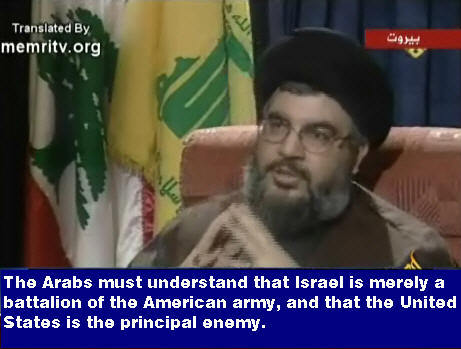“From a strategic perspective, our situation in the northern arena may be better than ever.” On the other hand, Golan added that Hezbollah now possesses formidable, unparalleled capabilities that no other terrorist organization ever had, and is capable of threatening all of Israel’s population centers. Oh, and that the Islamic State could develop into a “disturbing future threat.” He added, “The Syrian army has, for all intents and purposes, ceased to exist.”There are no good choices here. Not for Israel, and in this particular case since there are none for Israel, there are none for us.
Read more: http://www.al-monitor.com/pulse/originals/2015/06/israel-hezbollah-syria-golan-heights-assad-desintegration-is.html#ixzz3cHDjGc34
ISIS must die, probably to the last man, if the USA is to derive the most benefit. But in the mix there is Al Nusra, AKA, Al Qaeda, which has killed 3,000 Americans HERE. Hizballah/Iran, which has, well...

Iran looks, until now, and probably going forward as if they are ALL IN on Syria. They probably think they cannot afford to even LOOK like they can be defeated on this one.
And the FSA? They have already defected en masse with weapons and training to Al Nusra. There is no ‘moderate alternative’, and there is no Jefferson, and never will be at this rate.
Short of destroying ALL SIDES in Syria, Assad and his cat’s paws and controllers (Iran, Hizballah, IRGC), and the other salafi freaks (ISIS, Al Nusra) - and THEN WHAT?- what action can we take which benefits us over even the medium term?
Over several elections we have seen the triumph of EXTREME Salafi Islam, .i.e. the Muslim Brotherhood and their offshoots. This is what the people want (today, anyway). We just CANNOT allow this to happen because when it does, they shelter even more freakish morons who come here and kill us.
So to me, let’s just obliterate ISIS from the face of the earth, and then watch
David Ignatius, WaPo, outlines the difficulties, and some conventional thinking by bureaucrats adept at constructing frameworks to fool themselves.
The regime of President Bashar al-Assad in Syria is facing what U.S. experts say is the most intense pressure since the early days of the four-year conflict . This new squeeze poses some stark choices for the United States, Russia, Iran and Syria’s neighbors.
“Based on current trend lines, it is time to start thinking about a post-Assad Syria,” argues a U.S. intelligence official. Until recently, U.S. analysts had characterized the situation there as more of a stalemate. But over the past month, rebel gains in northern and southern Syria have begun to tip the balance.
U.S. officials see mounting pressure on Assad from four directions. A potent new rebel coalition known as Jaish al-Fatah, or the Army of Conquest, backed by Turkey, Saudi Arabia and Qatar, seized the capital of Idlib province late last month. Fighting ferociously alongside this coalition is Jabhat al-Nusra, or the al-Nusra Front, which is affiliated with al-Qaeda. Moderate rebels known as the “Southern Front,” backed by the United States and Jordan, are finally gaining some ground in southern Syria. And the Islamic State, the most fearsome group of all, is rampaging across northern, central and eastern Syria.
The rebel squeeze on Assad poses some vexing problems for the United States, too. That’s because many of the recent battlefield gains have been made by jihadist groups the United States regards as extremist, such as the al-Nusra Front and the Islamic State. Some officials fear that if Assad collapses, these extremist groups will rush to fill the vacuum — making the region even more unstable.
The United States refuses to work with Jabhat al-Nusra, regarding it as a band of unrepentant al-Qaeda followers, even though the group is said to receive indirect support from Turkey and Qatar. U.S. officials weren’t persuaded by an interview broadcast last week by Al Jazeera with al-Nusra Front leader Abu Mohammad al-Joulani, in which he offered conciliatory statements toward Syrian minority groups and said his fight isn’t with the United States.
Joulani didn’t disavow al-Qaeda, as some had hoped, which might have opened the way for a tactical alliance. U.S. experts continue to regard him as a dangerous foe and to warn against cooperation with his fighters. This complicates planning in the north, where the al-Nusra Front shares operations rooms in Idlib and Aleppo with Jaish al-Fatah.
The Islamic State has gained so much ground in Syria and Iraq recently that some Middle Eastern strategists argue for allying now with a lesser evil, the al-Nusra Front faction and other jihadists, to stop the Islamic State. The logic, explains one official, is
“First you defeat Hitler, then you defeat Stalin.” Other analysts argue that the only good knockout punch is Turkish military intervention, backed by U.S. air support.
A clearly, and by election of the people, ISLAMIST TURKEY on the border with Israel?Really?
Really?
No comments:
Post a Comment